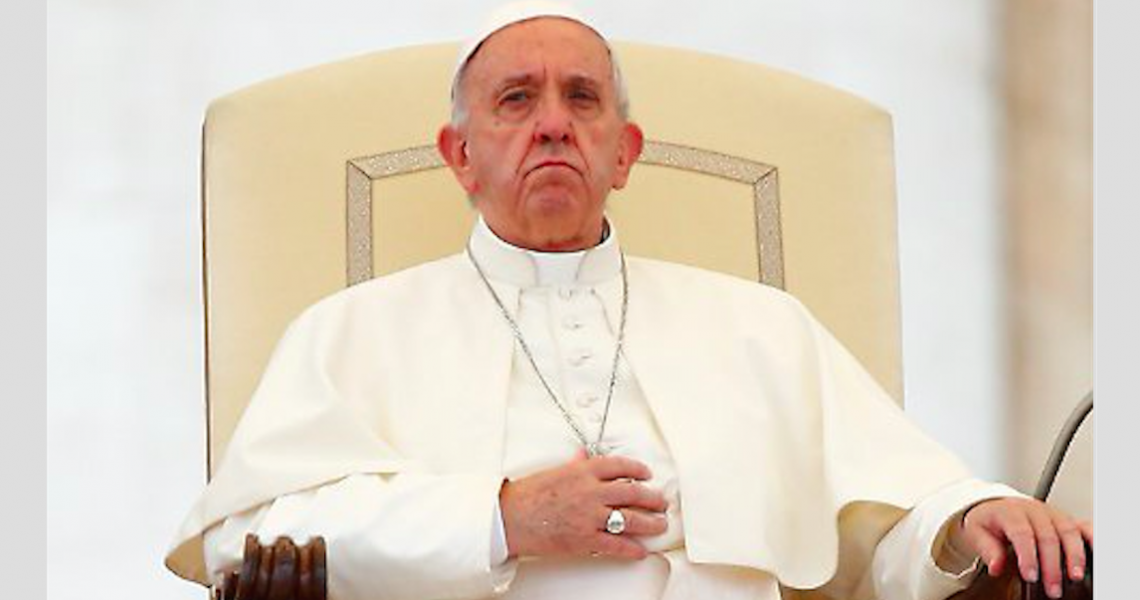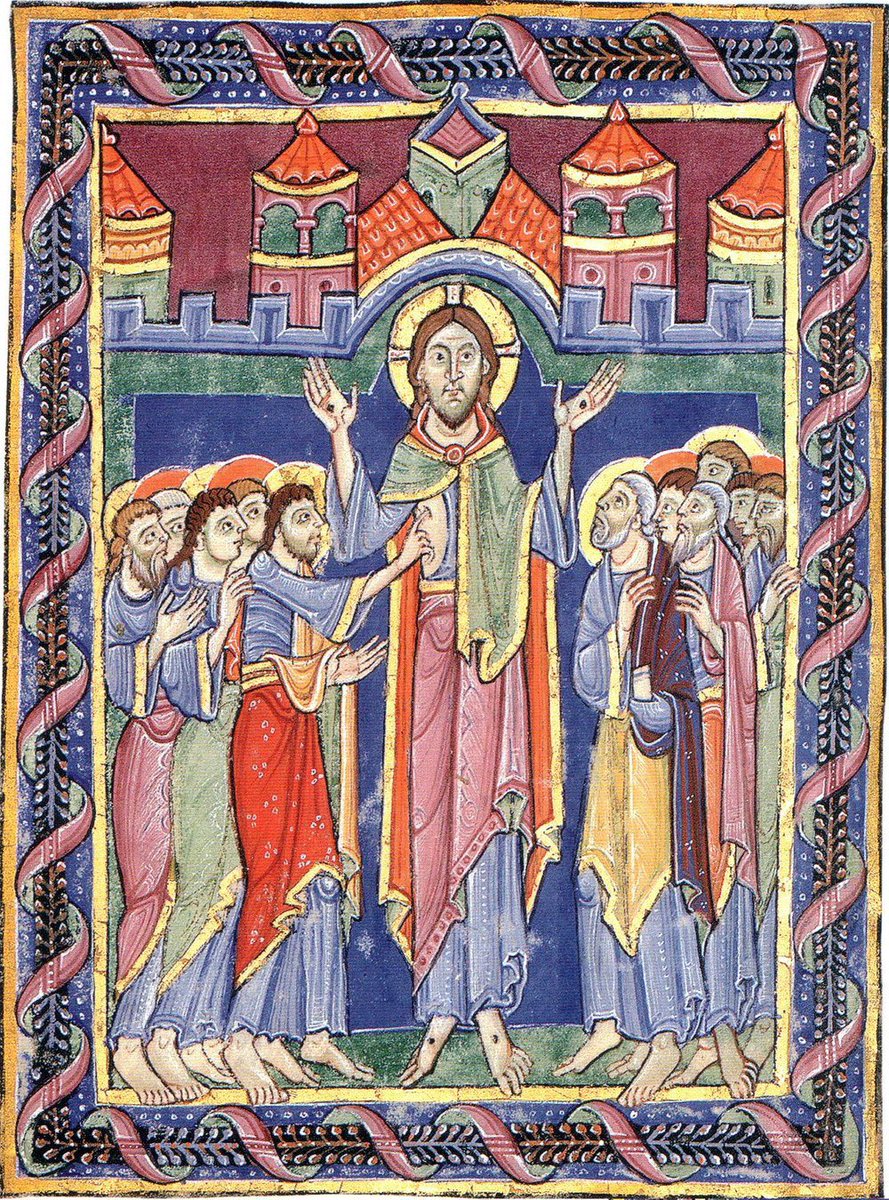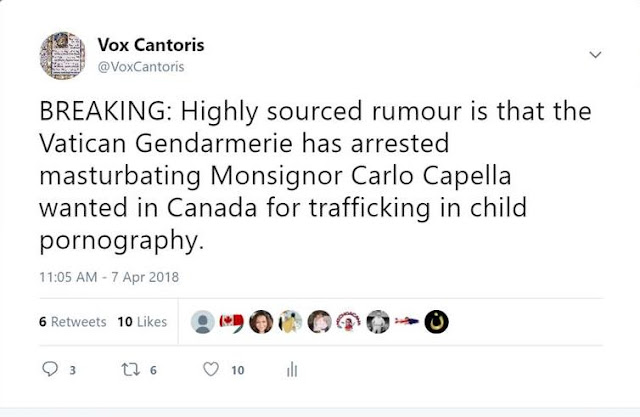2204 "The Christian family constitutes a specific revelation and realization of ecclesial communion, and for this reason, it can and should be called a
domestic church."
9 It is a community of faith, hope, and charity; it assumes singular importance in the Church, as is evident in the New Testament.
10
2205 The Christian family is a communion of persons, a sign and image of the communion of the Father and the Son in the Holy Spirit. In the procreation and education of children, it reflects the Father's work of creation. It is called to partake of the prayer and sacrifice of Christ. Daily prayer and the reading of the Word of God strengthen it in charity. The Christian family has an evangelizing and missionary task.
2206 The relationships within the family bring an affinity of feelings, affections and interests, arising above all from the members' respect for one another. The family is a
privileged community called to achieve a "sharing of thought and common deliberation by the spouses as well as their eager cooperation as parents in the children's upbringing."
11

Archbishop Paglia, anointed by Bergoglio to undermine the John Paul Institute on the Family and the Pontifical Council for Life has stated that is is "dangerous" to speak of the family as a "domestic church."
The sodomite sympathetic bishop, who may even be one himself, has contradicted traditional Catholic as articulated in tradition, the Catechism of the Catholic Church and the Second Vatican Council.
The full text from LifeSiteNews follows below.
https://www.lifesitenews.com/news/vatican-archbishop-its-very-dangerous-to-speak-of-the-family-as-a-little-ch
Paglia is the filthy little pervert who allowed a blasphemous orgiastic mural to be painted with his naked butt emblazoned upon the walls of the Cathedral. The face of Our Blessed Lord was based upon the sodomite hairdresser in the town.
May the LORD free us from these filthy perverts and convert them to repentance or destroy them in his wrath.

“The Church, which is a familial Church, for me, it isn’t very clear, it’s dangerous, for example, to define the individual family as a little church,” Archbishop Vincenzo Paglia said to a group of clergy and laity gathered at the major seminary of the Mexican diocese of Queretaro on March 24.
“It’s very dangerous, because it can encourage an egoism of the family,” continued Paglia. “I’m complete. I’m a little church. No?”
Paglia called the tendency to the “egoism of the family” a form of “familyism” and claimed that Jesus spoke against “familyism.”
“In the Gospel we have the very beautiful words of Jesus against familyism, very beautiful!” said Paglia.
“When his mother and his brother came to Jesus, what did he say to them?” asked Paglia. “Who is my mother, who are my brothers? Those who listen to the word of God. Those who participate in the Mass on Sunday.”
According to Paglia, there is only a “domestic church” through unity with other families within the Church.
“You are a domestic church by uniting yourself to other families,” said Paglia, who added that the family shouldn’t have “one center,” and “for this purpose, it’s better to have two centers: the parish and the family.”
“This is of decisive importance for me,” said Paglia. “For example, what do you do with a believer who is alone? Is he excluded? No, he’s not excluded,” because he has the “family of Sunday.”
“Those who aren’t married? My family isn’t that of my mother and father . . . the true family is the family of the Church. Those among the elderly who are alone, they cannot remain alone in our houses. On Sunday they have to come to the Church, to the Mass of the community,” he continued.
Archbishop’s words at variance with Catechism, other Catholic documents
The archbishop’s words seem to reject the Catholic Church’s traditional doctrine, which is based on Sacred Scripture, which likens the family to the Church and calls the family the “domestic church.”
The Catechism of the Catholic Church states in paragraph 2204, “The Christian family constitutes a specific revelation and realization of ecclesial communion, and for this reason it can and should be called a domestic church.” The statement is a direct quote of Pope John Paul II’s apostolic exhortation Familiaris consortio.
The Christian family “is a community of faith, hope, and charity; it assumes singular importance in the Church, as is evident in the New Testament,” the Catechism continues, citing several passages of Scripture, including verses from the Letter to the Ephesians, chapter five.
The Catechism also cites the Second Vatican Council, whose Constitution on the Church, Lumen gentium, paragraph 11, states: “The family is, so to speak, the domestic church. In it parents should, by their word and example, be the first preachers of the faith to their children; they should encourage them in the vocation which is proper to each of them, fostering with special care vocation to a sacred state.”
Paglia seems to be rejecting the words even of Amoris laetitia itself, which repeatedly refers to the family as the “domestic church,” and which Paglia claimed to defend at the conference.
Paglia’s denunciation of “familyism” was also made in his preceding talk, Amoris laetitia: for the pastoral care of marriage and of the family, in which he warned of “a sentimental and despotic familyism, which annuls all other ties.”
“The faith is inspired by the wisdom of the creation of God, which has not confided to the union of man and woman the care of an intimacy that terminates in itself, but the impassioned goal of making the world domestic and familial,” said Paglia.
“The pope, in the third chapter of the apostolic exhortation [Amoris laetitia], asks himself if up to now we haven’t made a mistake in presenting ‘a theological idea of matrimony that is too abstract, almost artificially constructed, far from the concrete situation and of the effective possibilities of real families,’” added Paglia.
The archbishop made only two tangential references to marriage as a “sacrament” during his talk, and mostly spoke of marriage as a way of reproduction. He also warned that parents shouldn’t be “obsessed” with directing their children, quoting Amoris laetitia’s words to the same effect.
Paglia’s controversial leadership of the Pontifical Academy for Life
Since his appointment by Pope Francis to the presidency of the Pontifical Academy for Life, Paglia has caused much controversy by overseeing the dismissal of many of the strongest voices for life and family from academy membership, as well as the appointment by Pope Francis of a large number of Academy members who dissent from Catholic doctrine on the inviolability of the right to life and on sexual morality. The purges have led to the creation of a parallel John Paul II Academy for Human Life and the Family (JAHLF), led by former members of the Vatican’s academy.
In his previous position as President of the Pontifical Council for the Family, Paglia oversaw the creation of a sex-ed program whose materials were so sexually explicit and even obscene that one psychologist associated with the Holy See’s Congregation for the Clergy said that Paglia should be evaluated by a sex abuse review board, and that “the pornographic images in this program are similar to those used by adult sexual predators of adolescents.”
While he was archbishop of the Italian diocese of Terni-Narni-Amelia, Paglia oversaw the creation of an “erotic” mural for his cathedral church that former members of the Pontifical Academy for Life called “blasphemous,” and even “demonic.”
The mural, painted by a famous homosexual artist, depicts Jesus carrying nets to heaven filled with naked and semi-nude homosexuals, transsexuals, prostitutes, and drug dealers, jumbled together in erotic interactions. The Savior himself is made to resemble a presumably homosexual male hairdresser from the town, and his private parts can be seen through his translucent garb. Paglia allowed himself to be painted among the other bodies in the nets, semi-nude and clutching a bearded man wearing nothing but a loose loincloth.
Paglia has steadfastly defended the mural, claiming it isn’t erotic or homoerotic. He has acknowledged that his sex-ed program “should have been dealt with more thoughtfully and professionally.”













